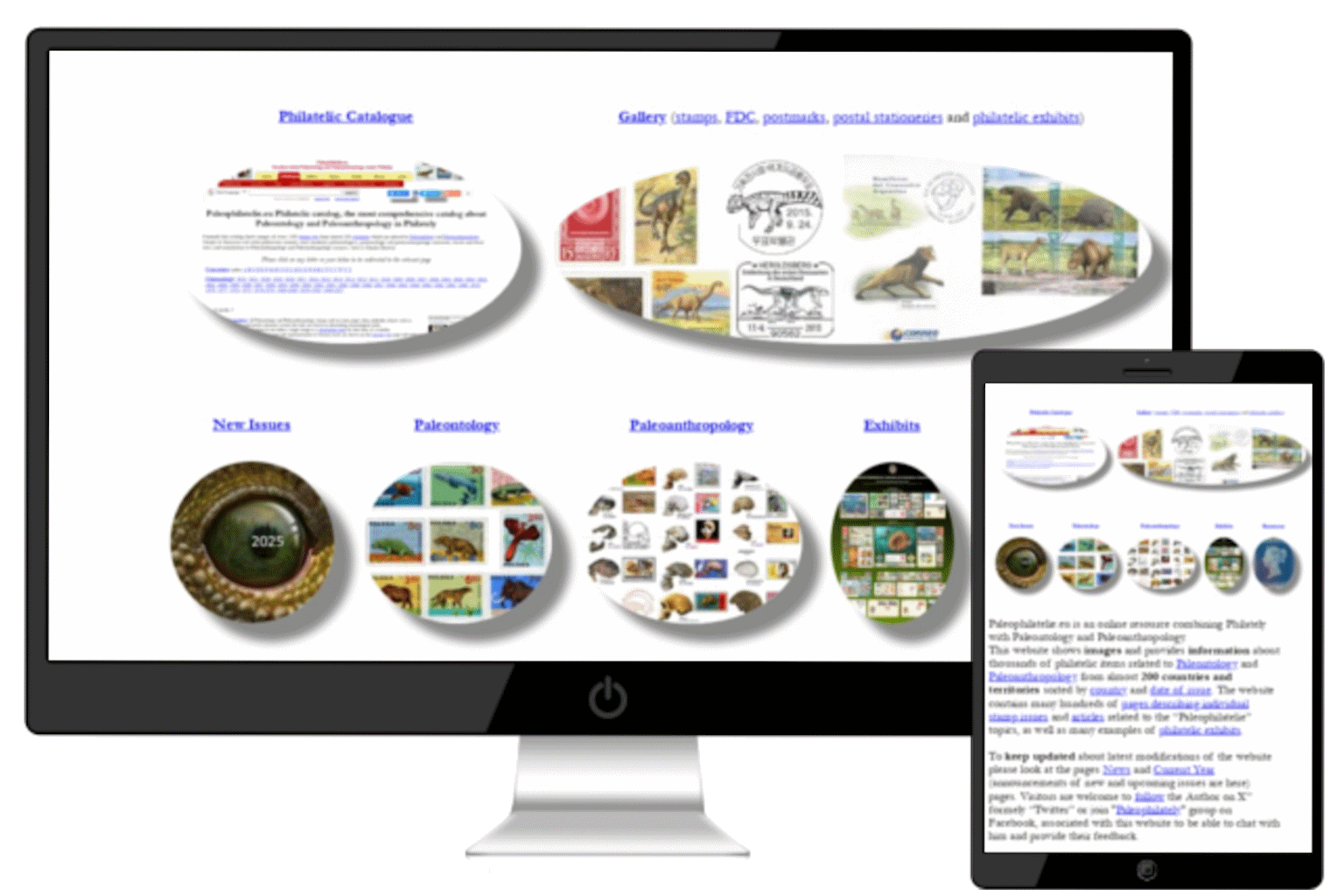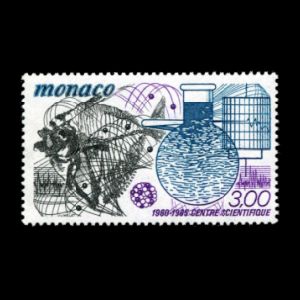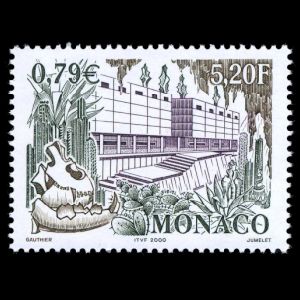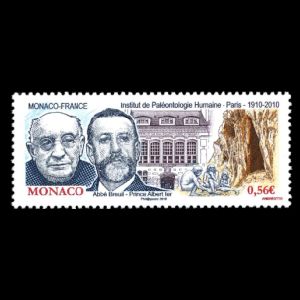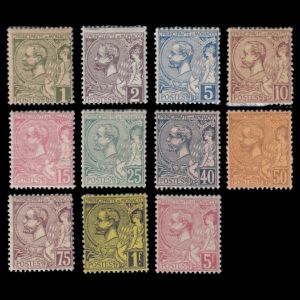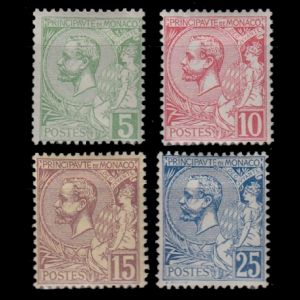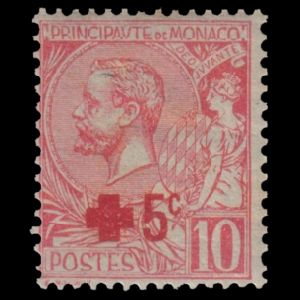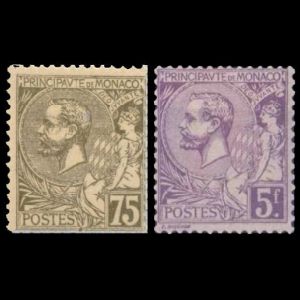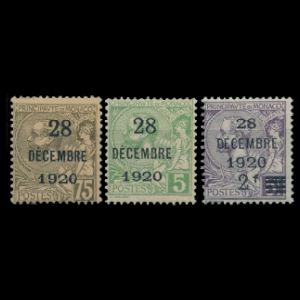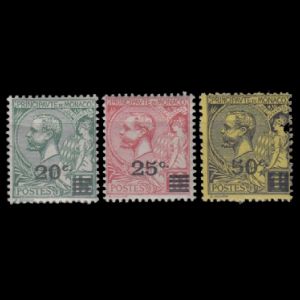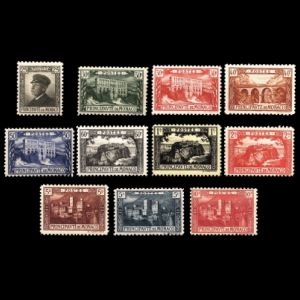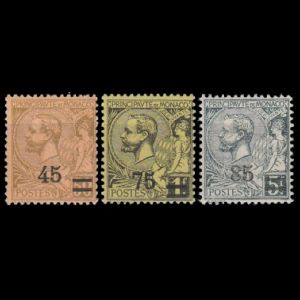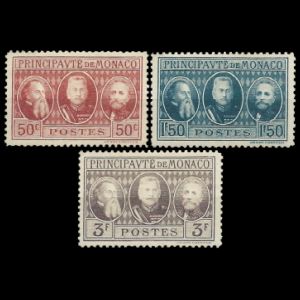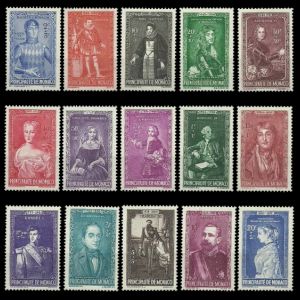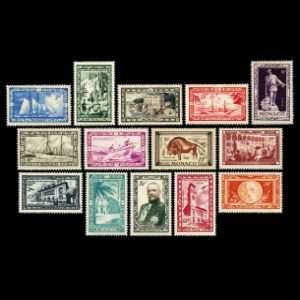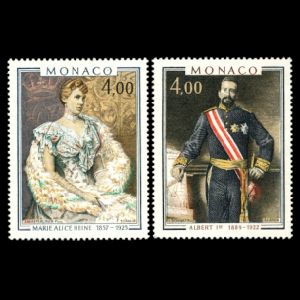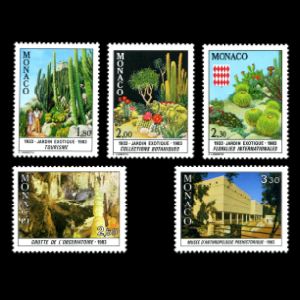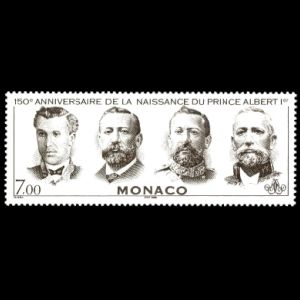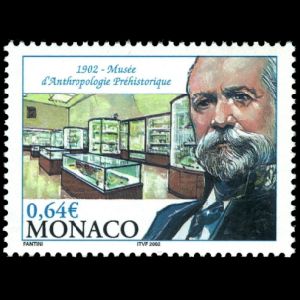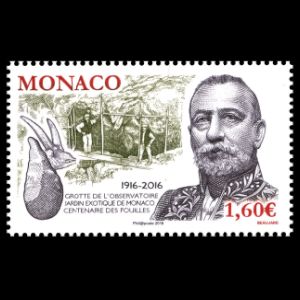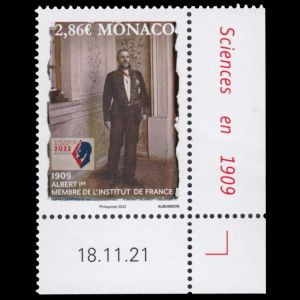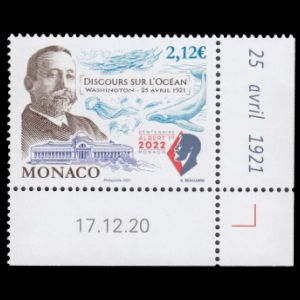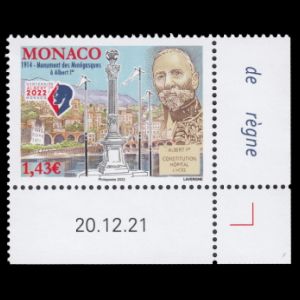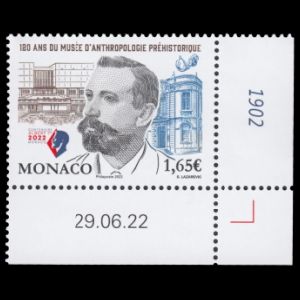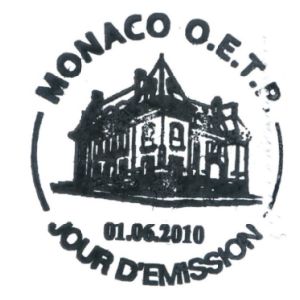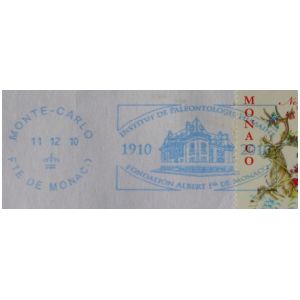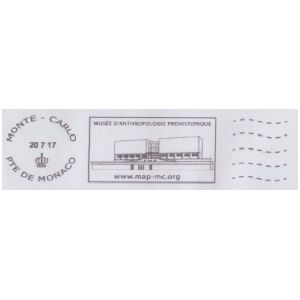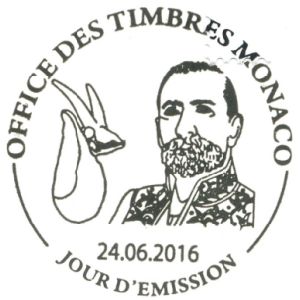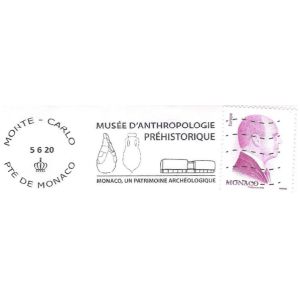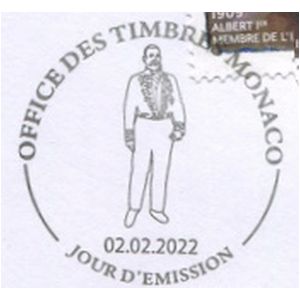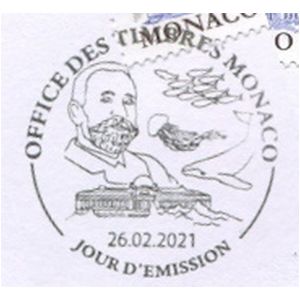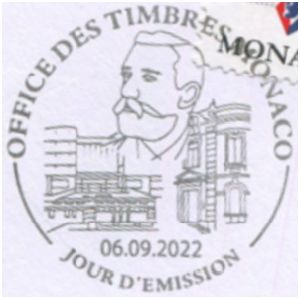Monaco
Prehistoric animals, fossils, Prince Albert I, Natural History Museums, fossil locations on stamps of Monaco
Contents:
Monaco, officially the Principality of Monaco, is a sovereign city-state and
microstate, located on the French Riviera in Western Europe.
France borders the country on three sides while the other side borders the
Mediterranean Sea.
Monaco has an area of 2.02 km2 and a population of about 37,800; it is the second smallest and the most
densely populated country in the world.
Monaco is known as a playground for the rich and famous, due to its tax laws.
Monaco is a principality governed under a form of constitutional
monarchy, with the Prince from Grimaldi family as head of state.
The House of Grimaldi have ruled Monaco, with brief interruptions, since 1297.
The state's sovereignty was officially recognized by the Franco-Monegasque Treaty of 1861,
with Monaco becoming a full United Nations voting member in 1993.
Despite Monaco's independence and separate foreign policy, its defense is the responsibility of France.
However, Monaco does maintain two small military units.
[R1]
The first postage stamps of Monaco were issued on July 1, 1885 and
featured the image of Prince Charles III of Monaco.
In 1937, the principality responded to a growing interest from philatelists by creating a Stamp Issuing Office.
The 1949 accession of Prince Rainier III led to increased importance for the principality’s philatelic issues.
During his reign, the prince was personally involved in all aspects of the design and format of the principality’s philatelic
issues, and he was quoted as stating that stamps were “the best ambassador of a country.”
The prince was a noted philatelist and his collection was the basis of Monaco’s Museum of Stamps and Coins.
Monaco joined the Universal Postal Union in 1955 and PostEurop in 1993.
[R2]
Interesting fact: The Post Authority of Monaco uses a standard commemorative cover for the FDC of various stamp, for example these FDCs from 2016;

Official stamps of Monaco related to Paleontology and Paleoanthropology: fossils, prehistoric animals
Notes:
[1] Fossil of prehistoric fish
Mene rhombea is shown on the left side of the stamp.
During the Middle Eocene (Lutetian epoch), about 48 to 40 millions of years ago, these fishes lived in the Tethys Ocean, a
large tropical sea in the area corresponding to the current Mediterranean.
[R6]
[2] Skull and jaw of cave bear (
Ursus spelaeus)
shown in bottom-left corner of the stamp.
The cave bear (
Ursus spelaeus) was a species of bear that lived in Europe during the
Pleistocene and became extinct about 24,000 years ago.
[3] Joint issue with France:
Portraits of Abbé Breuil and prince Albert I, building, Neanderthals in front of cave.

Other stamps of Monaco to consider: Natural History Museums, contributors to Paleontology and Paleoanthropology science, Prince Albert I
There are many stamps of Prince Albert I issued in Monaco.
Only stamps where Prince Albert I is shown in Anthropologic or neutral
contents are listed below.
Stamps where Prince Albert I shown at Polar expedition, Ocean Museum, fishing etc. are ignored.
Notes:
[A1]
One of most popular persons depicted on stamps of Monaco is
Prince Albert I.
His portrait appeared on many definitive stamps from 1891 to 1922, when he governed the principality of Monaco,
as well as on some other commemorative stamps between 1922-1942 and even later.
Prince Albert I of Monaco who had a keen interest in the origins of man and who founded the "Institute for Human Paleontology" in Paris
that was responsible for a number of archeological digs.
He founded the "Institute for Human Paleontology" (IPH) in Paris that was responsible for a number of archeological digs.
The first scientific establishment of this type in the world, the IPH, situated in Paris,
came into being in 1910 under the patronage of Prince Albert I.
Establishment of the Institute was the result of Prince Albert I meeting with two of the most
famous founders of contemporary prehistoric archaeology, Professor Marcellin Boule and Abbe Henri Breuil.
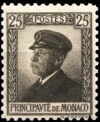
|
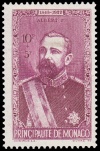
|
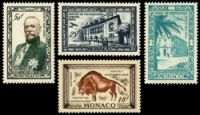
|
|
Prince Albert I on one of the stamps from "Indigenous motifs" set of Monaco 1922
MiNr.: 54, Scott: 40
|
Portrait of Prince Albert I among portraits of former Rulers of Monaco
MiNr.: 286, Scott:
|
Portrait of Prince Albert I, MiNr.: 368, Scott: C24;
Building of Anthropology Museum, MiNr.: 367, Scott: C23;
Building of Institut de paleontologie humaine in Paris, MiNr.: 366, Scott: C22;
an Aurochs from the famous Lascaux cave, MiNr.: 364, Scott: 244;
|
The IPH takes on several missions: to manage extensive prehistoric excavation sites, to carry out field and
laboratory research, to preserve a rich prehistoric heritage, to diffuse and develop scientific culture, to provide facilities for
students and researchers.
[R4] [R5]
[A2] In March 1949 Post Authority of
Monaco issued a set of 15 stamps "100 anniversary of
Prince Albert I".
There are 4 stamps of the set related to Paleo-Philately:
- 50f. - portrait of Prince Albert I
- 40f. - Building of Anthropology Museum in Monaco [A3]
- 25f. - Building of Institut de paleontologie humaine in Paris
- 18f. - An aurochs from the famous Lascaux cave
[A3] Building of Museum of Prehistoric Anthropology depicted on stamp with face value of 3,30f.
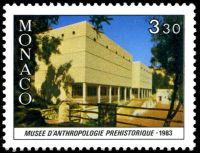
|
|
Museum of Prehistoric Anthropology on stamp of Monaco,
MiNr.: 1575, Scott: 1365.
|
The Museum of Prehistoric Anthropology was founded by Prince Albert I in 1902 “to conserve traces of early humankind exhumed in the Principality
and neighbouring regions.”
The numerous collections which have been brought together in the Museum
over more than a century represent the various phases of regional
prehistory and protohistory. The majority of the archaeological and
palaeontological exhibits come from the Principality and neighboring
areas (France and Italy). The collections on display enable visitors to
trace the major steps in the evolution of humanity through the various
glacial and interglacial periods. They teach us that over a million
years ago, the French Riviera was already a favoured habitat for our
ancient ancestors.
[R3]
[A4] Portrait of Prince Albert I, hand axe, skull and antler of an alpine ibex from the Garden cave.
The Alpine ibex (
Capra ibex), also known as the steinbock, bouquetin, or simply ibex,
is a species of wild goat that lives in the mountains of the European Alps.
Commemorative postmarks of Monaco related to Paleontology
Legend is here
| 17.05.2021 [DU] "Institut de paleontologie humaine" [Sp] |
|
|
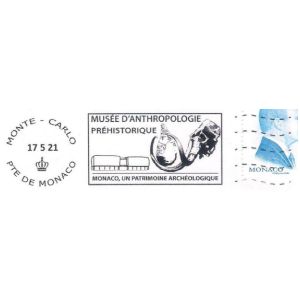
|
|
Some other commemorative postmarks of Monaco to consider: Natural History Museums, flit tools, contributors to Paleoanthropology
Legend is here
References:
Acknowledgements:
Many thanks to Dr.
Peter Voice from Department of Geological and Environmental Sciences, Western Michigan University,
for reviewing the draft page and his valuable comments.
